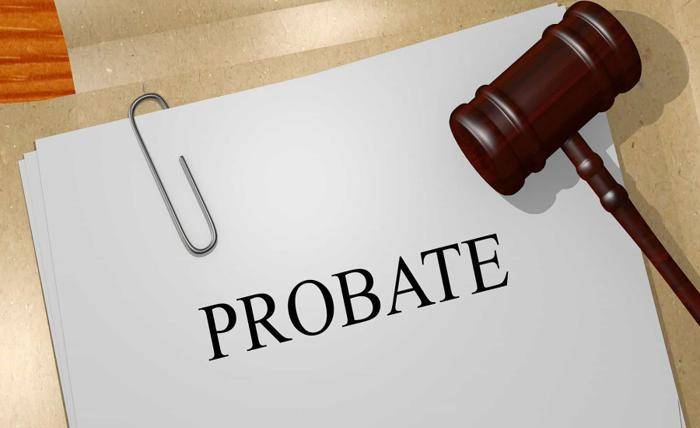Navigating the complexities of estate planning can be daunting, particularly when it comes to managing wills and trusts after a loved one’s passing. In this intricate landscape, the guidance of a probate attorney becomes invaluable. A probate lawyer proficient in the legal processes surrounding the distribution of a deceased person’s assets, ensuring that their final wishes, as documented in their will or trust, are honored and executed in compliance with applicable laws. These legal professionals not only facilitate the probate process but also provide essential guidance to families during a time of emotional turmoil. They assist in interpreting legal documents, addressing potential disputes among heirs, and ensuring that all tax obligations are met. By serving as both an advisor and mediator, probate attorneys help to streamline the often complicated procedures of estate administration, ultimately aiming to reduce the stress for beneficiaries and executors alike. This article will explore the multifaceted role of probate attorneys in managing wills and trusts, highlighting their critical functions in safeguarding the interests of both the deceased and their heirs, thereby allowing families to honor their loved ones’ legacies with clarity and confidence.
Understanding the Probate Process Effectively
Navigating the probate process requires clarity on several fundamental aspects, including the identification of assets, settlement of debts, and distribution of inheritances according to the decedent’s wishes. One of the pivotal steps in this journey is the validation of the will, which may involve court hearings to establish its authenticity. Following this, the executor or personal representative takes on the responsibility of managing the estate, which includes compiling a detailed inventory of all assets and liabilities. Effective communication with beneficiaries is essential during this phase, as it helps mitigate disputes and fosters a collaborative environment.
Additionally, understanding the timeline and potential costs associated with probate is crucial. The process can take several months to years, depending on the complexity of the estate and the jurisdiction’s specific requirements. Fees related to court filings, attorney services, and other administrative costs can accumulate, impacting the overall value of the estate. Therefore, having a comprehensive grasp of these elements can significantly benefit all parties involved, ensuring a smoother transition through what can often be a complicated and emotionally charged experience.
Drafting and Validating Wills and Trusts
Creating a legally sound will or trust is essential for ensuring that an individual’s assets are distributed according to their wishes after their passing. This process involves careful consideration of various factors, such as asset types, family dynamics, and potential tax implications. Engaging a knowledgeable attorney during the drafting phase can help ensure that the document meets all legal requirements and effectively reflects the testator’s intentions. Furthermore, the language used in these documents must be clear and unambiguous to avoid misinterpretations and disputes among beneficiaries.
Validation is equally crucial, as it confirms the authenticity of the will or trust in a legal setting. This may require gathering witness statements, notarization, or, in some cases, a court hearing to resolve challenges from interested parties. An attorney can assist in navigating these complexities, offering guidance on practices for establishing validity and addressing any conflicts that arise. Ultimately, a well-drafted and validated will or trust serves as a cornerstone for estate planning, providing peace of mind for both the testator and their loved ones.
Navigating Legal Challenges and Disputes
Legal disputes can arise during the probate process, often stemming from disagreements among beneficiaries or challenges to the validity of the will itself. These conflicts may involve questions about the testator’s mental capacity at the time of drafting, allegations of undue influence, or claims regarding improper execution. A probate attorney plays a critical role in addressing these challenges, as they possess the guidance to analyze the situation and formulate a strategy that aligns with the client’s goals. Their experience in negotiating settlements can also be invaluable in resolving disputes amicably, thereby minimizing emotional strain and financial costs for all parties involved.
In instances where disputes escalate to litigation, the attorney will advocate for the client’s interests in court, presenting evidence and legal arguments to support their case. This involves meticulous preparation, including the collection of relevant documentation, witness testimonies, and professional opinions where necessary. The attorney’s ability to navigate procedural intricacies and effectively communicate in a courtroom setting can significantly influence the outcome of such disputes. Ultimately, skilled legal representation is essential to protect the intentions of the deceased and ensure a fair resolution for all beneficiaries involved.
Ensuring Compliance with State Laws
Navigating the complexities of probate law requires a thorough understanding of state-specific regulations and requirements. A probate attorney ensures that all actions taken during the probate process comply with local laws, which can vary significantly from one jurisdiction to another. This includes adhering to timelines for filing documents, notifying beneficiaries, and settling debts of the decedent. By meticulously managing these obligations, the attorney mitigates the risk of legal challenges that could arise from non-compliance, ensuring a smoother probate process and protecting the interests of the estate and its beneficiaries.
Moreover, a knowledgeable probate attorney will keep abreast of any changes in legislation that may impact the probate process. This proactive approach not only helps in avoiding potential setbacks but also fosters a sense of trust among clients who rely on their attorney’s guidance to navigate the intricacies of the legal landscape. By ensuring compliance with state laws, the attorney plays a vital role in safeguarding the legitimacy of the estate’s administration and ultimately facilitating the timely distribution of assets to rightful heirs.
Facilitating Smooth Asset Distribution Procedures
Efficient asset distribution is crucial for honoring the decedent’s wishes and ensuring that beneficiaries receive their rightful inheritances in a timely manner. An experienced probate attorney facilitates this process by carefully reviewing the will or trust documents to clarify the intentions of the deceased and identify all assets that need to be distributed. This includes managing both tangible and intangible assets, such as real estate, financial accounts, and personal belongings, while also considering any outstanding debts or tax liabilities that may affect the final distribution.
Furthermore, the attorney plays a vital role in communicating with beneficiaries and keeping them informed throughout the distribution process. By addressing any questions or concerns and providing clear instructions, the probate attorney helps minimize conflicts among family members and potential disputes over asset allocation. Through organized and transparent procedures, the attorney not only ensures compliance with legal requirements but also promotes harmony among beneficiaries, facilitating a smoother transition during what can be a challenging time for all parties involved.
Conclusion
The role of a probate attorney in managing wills and trusts is vital to ensuring that the intentions of the deceased are honored while navigating the complexities of estate law. These legal professionals provide invaluable guidance through the probate process, helping to minimize conflicts among heirs and ensuring compliance with legal requirements. By offering guidance in the administration of estates, probate attorneys not only safeguard the interests of the deceased and their beneficiaries but also contribute to a smoother transition of assets. As individuals plan for the future, understanding the importance of a probate attorney can provide peace of mind, ensuring that one’s legacy is managed effectively and in accordance with their wishes.

